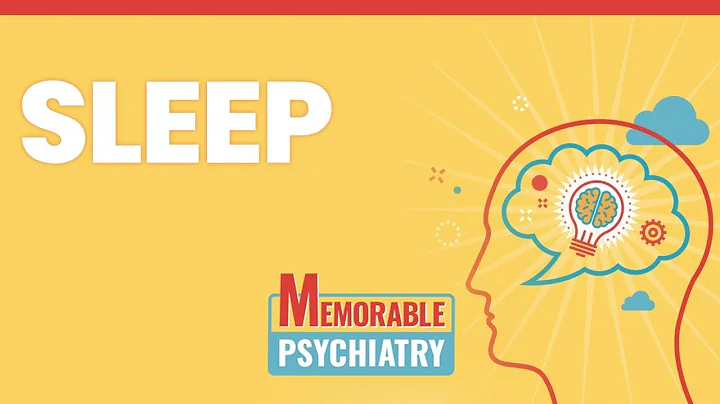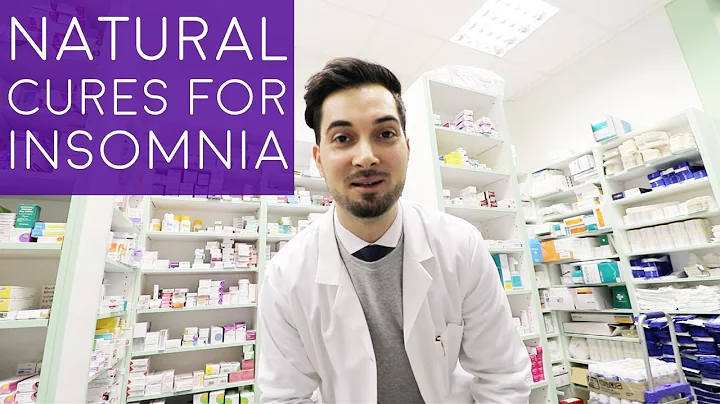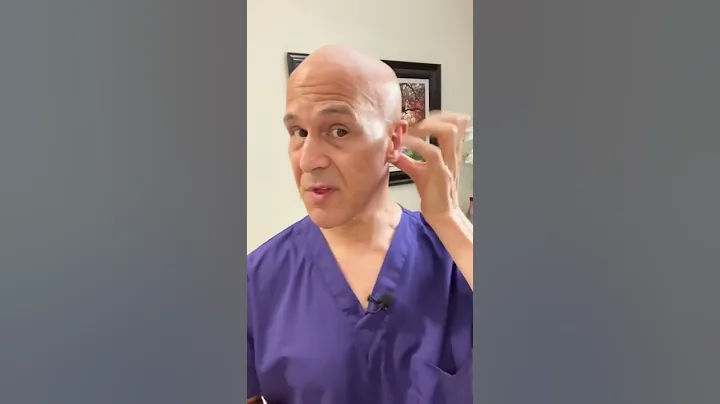

Medical guidance: Professor Li Yan, Director of the Psychological Sleep Department of Guangdong Provincial Hospital of Traditional Chinese Medicine
Many patients with insomnia disorder suffer from insomnia. However, due to lack of understanding of sedative and sleep-aid drugs, patients often "discuss the drugs" and become more psychologically stressed. Today, the "Mind Reading Medical Talk" column specially summarizes and answers the top ten questions about sedative sleep aids that patients in the psychological sleep department often ask.

1. Should I take sedatives as long as I have insomnia?
All guidelines for the diagnosis and treatment of insomnia disorders point out that whether it is short-term or chronic treatment of insomnia disorder, the first step is to conduct sleep hygiene education to prevent and correct bad sleep behaviors and concepts. In short, it is to help patients scientifically understand the characteristics of sleep and create regular work and rest habits. On this basis, auxiliary drug treatment will be considered when necessary. In fact, many insomnia patients adjust their sleep behavior under the guidance of sleep doctors and can return to normal sleep without taking sedatives.

2. As long as you take sedative and sleeping pills, you will never be able to stop taking them for the rest of your life?
Sedative sleep aids are generally dependent. Different types of sedative and sleep-aid drugs have different dependencies. Short-term use of sedative and sleep-aid drugs can help improve insomnia, but should not be taken for a long time, nor should it be stopped suddenly. Generally, when insomnia improves, under the guidance of a sleep specialist, the dose of is gradually reduced until is stopped. It can effectively avoid withdrawal symptoms such as insomnia, anxiety, excitement, palpitation, and tremor.
3. Will you take more sedative and sleeping aids?
If the efficacy of the sedative and sleep-aid drugs currently being taken gradually decreases, you should return to the psychological sleep department as soon as possible to clarify the cause and diagnosis and adjust the treatment plan in a timely manner. At the same time, under the guidance of specialist , other sedative drugs are selected to replace with . To avoid or reduce the formation of drug addiction, do not add medication on your own.
4. How long can I take sedative and sleeping pills?
The general use period of sedative and sleeping aids should not exceed 6 weeks. But the specific time depends on the control of insomnia symptoms. If the symptoms of insomnia fail to improve continuously and the medication is stopped prematurely, the condition will easily relapse. Instead, the duration of taking sedative sleep aids will be increased. Patients who have been taking the drug for more than 4 weeks should withdraw slowly when stopping the drug.
5. Will your brain become stupid after taking sedative and sleeping pills?
Some patients report that after taking sedatives and sleep aids, their brains will become sluggish and their memory will decrease the next day. Long-term use of sedatives and sleep-aids, especially benzodiazepines such as estazolam, alprazolam, lorazepam, etc., may indeed affect brain cognitive function. But it also depends on the time of taking the medicine.
Some patients take long-acting sleep aids at 3 or 4 a.m. when they really can’t sleep. The next morning, the medicine has not been completely metabolized in the body, which will affect brain function during the day.In this case, you should take the medication in advance, and switch to a short-acting sleep aid.
The above article is "Ten Questions and Answers on the Use of Sedative Sleep Aids (Part 1)". I want to know "Should sedative sleep aids be taken only when you really can't fall asleep?" "Can you take sedative sleep aids intermittently?" There are many kinds of sedative and sleep aids. Which one is the best and has the least side effects?" "Why can sedative and sleep aids be prescribed for only one week at a time?" "Can children take sedative and sleep aids?" , please pay attention to the next issue." "Mind Reading Medical Talk" column "Ten Questions and Answers on the Use of Sedative Sleep Aids (Part 2)".

Mind Reading Medical Talk | "Narcolepsy", do you know?
Mind-reading medical talk | Key points for psychological adjustment of candidates after the college entrance examination
Mind-reading medical talk | Understand the sleep health code from the perspective of traditional Chinese medicine
Medical guidance: Li Yan, professor, MD, doctoral tutor, chief traditional Chinese physician, national 2 Level psychological counselor. He is currently the director of the psychological sleep department of Guangdong Provincial Hospital of Traditional Chinese Medicine. Won the title of Outstanding Young Traditional Chinese Medicine Talent of Guangdong Province, the Young Famous Traditional Chinese Medicine Doctor of Guangdong Provincial Hospital of Traditional Chinese Medicine, and the Good Doctor of Yangcheng.He is currently the chairman of the Sleep Psychology Professional Committee of the Guangdong Society of Integrated Traditional Chinese and Western Medicine, the deputy chairman of the Psychosomatic Medicine Professional Committee of the Guangdong Society of Integrated Traditional Chinese and Western Medicine, and the deputy chairman of the Clinical Psychosomatic Medicine and Psychotherapy Professional Committee of the Guangdong Society of Clinical Medicine.
studied under the tutelage of Professor Tong Xiaolin, a famous traditional Chinese medicine doctor in Guang'an, Beijing, Professor Zhang Xuewen of Shaanxi University of Traditional Chinese Medicine, Professor Huang Huang of Nanjing University of Traditional Chinese Medicine, and Professor Li Fazhi of Henan University of Traditional Chinese Medicine. He is deeply loved by famous veteran Chinese doctors in terms of traditional Chinese medicine skills and medical ethics. edification. In the course of many years of clinical practice, a TCM theoretical guidance system based on "Six Meridians of Febrile Diseases" and "Spleen and Stomach Theory" has been gradually formed. He is especially good at using relevant theories of "Syndrome Differentiation of Febrile Diseases and Six Meridians" and "Spleen and Stomach Theory" to guide the treatment of anxiety disorders. , depressive episodes, sleep disorders, panic disorder, bipolar disorder, schizophrenia and other mental and psychological sleep-related diseases.
has received professional training in psychotherapy from various schools such as systematic psychoanalysis, cognitive behavioral therapy , family therapy, marriage therapy, family system arrangement, sandtray therapy, etc., and flexibly uses individual psychotherapy, group psychotherapy, family system arrangement, and sandtray games. , Emotional Victory Therapy and other therapies, covering various types of sleep disorders, depressive episodes, various neuroses , interpersonal difficulties, adolescent emotional and behavioral disorders, abnormal marriage and family relationships, abnormal parent-child relationships, and occupational Various psychological disorders such as adjustment difficulties.
Consultation time: Monday and Wednesday mornings (Psychological Sleep Department, outpatient department, Dade Road General Hospital, Guangdong Provincial Hospital of Traditional Chinese Medicine), Thursday morning (special needs clinic on the fifth floor, West District, Dade Road General Hospital, Guangdong Provincial Hospital of Traditional Chinese Medicine).
Introduction to the Department of Psychological Sleep of Guangdong Provincial Hospital of Traditional Chinese Medicine

The Department of Psychological Sleep of Guangdong Provincial Hospital of Traditional Chinese Medicine was established in 2005. In the 14 years since its establishment, it has developed rapidly, with a full range of diagnosis and treatment diseases, strong comprehensive service capabilities, and great national influence. The specialty currently has 9 clinicians and 3 psychotherapists, with more than 30,000 outpatient visits per year. The pure Chinese medicine treatment rate is close to 95%, and the effective rate is over 80%.
Psychological Sleep Specialist focuses on various types of sleep disorders, mental disorders, psychological disorders and some difficult and complicated diseases. And adjust poor interpersonal relationships, abnormal parent-child relationships, learning disabilities , adolescent adjustment disorders, abnormal marital relationships, etc. The clinical diagnosis and treatment process of the
department attaches great importance to physical therapy and psychological therapy. The treatment plan is highly individualized according to individual needs. Selective combination of traditional Chinese medicine decoction, acupuncture, psychotherapy, and physical therapy. It carries out individual psychotherapy, group psychotherapy, sleep cognitive behavioral therapy, hypnotherapy , sandbox therapy, acupuncture and other special therapies, with remarkable clinical effects and outstanding characteristics of traditional Chinese medicine.

Contributed by: Department of Psychological Sleep, Guangdong Provincial Hospital of Traditional Chinese Medicine Zheng Liming
Executive Editor: Lu Yueming
Review and Proofreading: Zhuang Yingge
Responsible Editor: Song Liping
















![[Guest Visit] Dr. Jian-Ping Liu's Visit to Jaseng Hospital of Korean Medicine | 231110 - DayDayNews](https://i.ytimg.com/vi/rS2ZRh9hmo8/hq720_2.jpg?sqp=-oaymwE2CNAFEJQDSFXyq4qpAygIARUAAIhCGABwAcABBvABAfgBtgiAAoAPigIMCAAQARgtIE8ofzAP&rs=AOn4CLBJBFW9x3oNVLMgByvaQW8Bq6WGJg)







